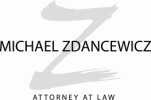 Document recording can be defined as the act of putting one or more documents into the official records of a county: in Arizona, that would be accomplished via the County Recorder’s office.
Document recording can be defined as the act of putting one or more documents into the official records of a county: in Arizona, that would be accomplished via the County Recorder’s office.
The most commonly recorded types of documents are those associated with real property and matters related to its ownership. These include:
- Deeds and trustee’s deeds
- Mortgages
- Record of payments, judgments, and satisfaction of judgments
- Liens and lien alerts
- Foreclosure
- Assignment
- Loan Modification
- Court documents and affidavits
- Warranty Deeds
- Quitclaims
Since creditors often have issues relating to these documents and actions, it is important for creditors to be familiar with the requirements for recording documents. Knowledge and preparation can help facilitate the progress of a creditor’s legal actions, and prevent costly errors and delays.
Here are the basics of the document recording process:
- Document is accepted for recording by the Recorder’s office
- Recording fee is paid
- Document is given a document/volume/page number
- Document is date/time-stamped
- Copy of document is made; original is later sent or e-mailed back
Recently, electronic document recording (e-recording) via Internet introduced a faster, more economical way to submit and pay for document recording. Turnaround time has also improved greatly, as e-recorded documents are often returned to the customer within minutes or hours of submission.
There are statutes that govern recording documents in Arizona, ranging from proper formatting to monetary penalties regarding falsification of information. The better prepared a creditor is when recording documents, the greater the opportunity to pursue problem-free legal outcomes.
If you would like more information about recording documents, or if you need assistance from an attorney, contact Windtberg & Zdancewicz to schedule an initial consultation.
The attorneys at Windtberg & Zdancewicz, PLC, provide clients with experienced legal representation in all collection matters. We are experienced in creditor’s rights including garnishments, charging orders, attachment, property execution, trustee’s sales, foreclosures, judgments, judgment collection, domestication of foreign judgments, and creditor’s issues in bankruptcy cases. If you need assistance with your collection matters, please contact us at (480) 584-5660.
